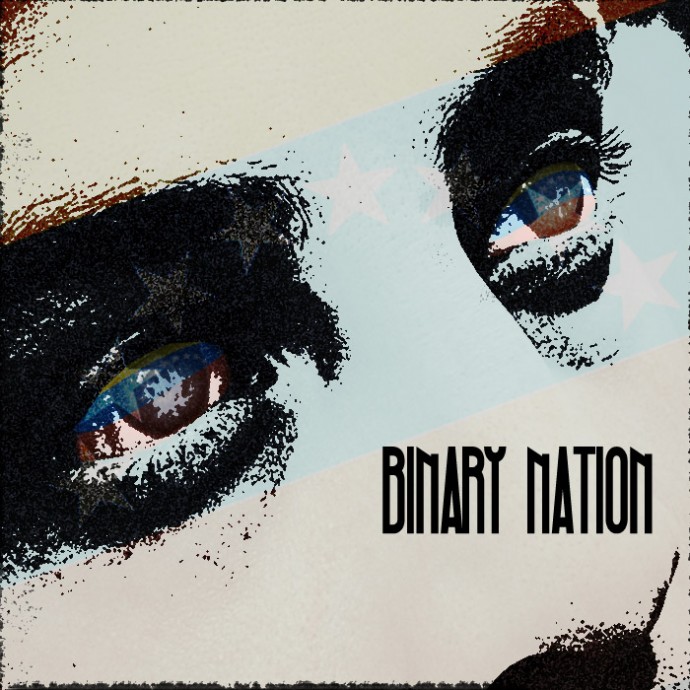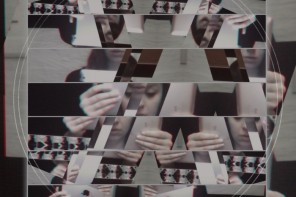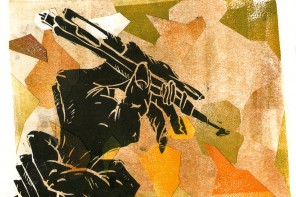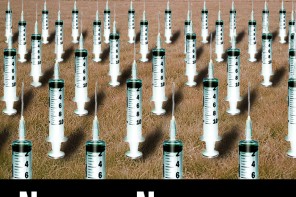One of the most controversial political figures in the world becomes surrounded by a new level of mysticism. Hugo Chávez, the absent, longstanding President of Venezuela just lost his battle against cancer, his unknown present has transformed him from person to idea. A Venezuelan student will discuss the class struggle, the clash of ideas, the governing party and the opposition, and the future of a country where positions are as distant from one another as life and death.
Last Monday, 18 February 2013, in the dark early morning Venezuela’s president, Hugo Chávez, like a ghost, a devil or a saint, more a spirit than a body, presumably went back to Caracas, the capital of the country he has been ruling since 1999, one year after his first of already three consecutive victories in the presidential elections. There was no live coverage, just an official image released in the night that showed a confusingly healthy version of the absent president. Something did not look quite right but it was not only the strange pink color in his cheeks. A few hours later, Facebook was full of more macabre images and different versions of what was actually happening. A convalescent leader in his last days, there were even rumors that he was already dead and had been that way for a long time. A leader so powerful that, dead or alive, the only truth is that he is still ruling the country and inspiring very strong feelings. We made him that powerful.
Chávez’s impact on Venezuela’s reality is hard to classify for me, as a middle class Venezuelan student in a private university, basically because his actions have not affected me very much in a positive nor negative way. But, love him or hate him, you cannot say that Venezuela is the same as before. It’s populist for the opposition, fair for his supporters, Hugo Chávez administration ended a very long right wing government tradition. He started to focus on the poor people, stopped excessive privileges for multinational corporations, the numbers on education and public health care have risen for good, the corruption is still there as before him, the insecurity seems to have risen up, there is a financial irresponsible management, rampant inflation, and a divided country as it has never been before.
And maybe this is his more lasting and deep influence in Venezuela. You are with him or without him. You hate him or you love him. After the elections this past October, people cried in the streets either because they were happy or because they were sad but the emotion this day was so strong that they cried. Cried! A friend of mine that worked in the campaign of Henrique Capriles, the opposition’s candidate, cried and wore black clothes for a week, mourning the election lost.
That’s his thing, awakening emotions, provoking strong reactions. And not only here in Venezuela. Latin American politics panorama suddenly started to be the focus of rather uninterested viewers. The United States declared him as a dangerous influence in the continent, sensationalist media from there called him, America’s number one threat, considering him and his vision even more dangerous than Saddam Hussein was with his arsenal of unfound nuclear weapons. The region changed as a block after having him as a representative leader for years, enact a less submissive policy toward the United States and foreign controllers. It was seen by many as a second independence, the resume of Simón Bolivar’s dream. Miles away, so far away that the reality of facts arrives half dissolved, the image of Chávez awakes reactions. It is common to see in Europe left wing organizations and collectives that organize discussion meetings to create awareness of his importance in the region, his fight against imperialism and how media distorts his image.
And that is true, Chávez is a distorted image. Both of them equally uncertain, the Chávez with “photoshopped” pink cheeks and the Chávez picture where he is dying with a tube in his mouth was published by the Spanish newspaper, El País, as top news, followed by an apology for the fake information of his death and the publication of the fake image. As a rule, TV in Venezuela can only show two faces, diametric opposite one from another. It is easy to believe that everything is going swell when your favorite media tells you so. It also works the other way. And that’s how his death is going to be presented and understood, as a political media strategy, a martyr or the end of the terror.
I personally don’t think he is qualified enough to be a president. Maybe he has never been. He has only attended the military academy, I guess that is not enough to know how to deal with all the complexities of ruling a country in every sense. I see him more as a crazy guy, not in a bad way necessarily, but crazy and a bit naïve. Some very powerful and emphatic version of the crazy people that stand in one corner of a busy street to yell crazy prophecies to the bystanders. At least as a good crazy fellow, he believes his own words.
It is undeniable that Venezuela, and maybe the region, has gained a lot with this new vision. Now there is a sense of self-esteem that was non-existent before, a healthy feeling of proud that make this countries to search for government formulas to stop thinking so much in the interests of wealthy multinationals but in the interest of its own population. Nevertheless, that is not enough anymore. There has to be more than a speech and clumsy predictions. Chávez impetus, exciting and inspiring at first, finds itself short after such a long period in power. There are no new ideas, just the same way, a long way that has collected now several mistakes.
But facts have a long time become unimportant. Now it is a matter of faith. Almost a religion. If you support him you have to stand with him no matter what, understand that he knows better and if he makes a decision that might sound strange or suspicious to you, you better know that it is for you own good and that there are certain things that you cannot completely understand. If you are against him you have to support every bad comment, deny his advances and call him a dictator, even the thought that he has been elected democratically and there are no particular threats to silence the opposition. Yes, because even though the position of many American media sources and the Venezuelan opposition is to call him a dictator, the truth is that he was elected three times by most of the Venezuelan people, and his popularity is impossible to deny. For good or bad, he was chosen by the majority, and is that not the idea of democracy?
Now, more than a decade after he took the power, Venezuela finds itself divided and in despair. And the reaction of the people is to search for a leader, the next big leader, both sides, a search for a messiah that lead them to a victory.
Somebody said that every country has the leader they deserve. I think that person was right. We stopped searching for a common idea or goal for Venezuela and started searching for a leader that takes us easily to an unknown welfare. Our current situation is not Chávez fault but ours. He did what he promised, he achieved what he could and maybe nothing has improved in a long time because we stopped demanding more.
I don’t think things would change that much if the opposition wins, certainly I don’t believe that they are going to take us all to a capitalist paradise. Politic here seems to have be plenty of emotions but lack ideas. I believe it is sad to rely so much on one person, so much that the entire population hopes for a magical solution like that.
Chávez might be dead by now or may survive to rule until 2019, the date when his time in power will end. He also could continue his Bolivarian movement to an apparent independence from any empire or foreign force, or the opposition could after his death cast the spell and call for freedom from the socialist utopia, but the real independence, the one that Venezuela needs is not going to be achieved that way. Independence is when the people start to take control of their own future. It’s when they stop fearing the government, and especially, when they stop searching for leaders to control their futures, that independence I think can only be conquered by doing the opposite: stopping the search of a new president and define a common future.
Following a leader might be useful for direction and inspiration, but when you stop thinking on the direction and you just follow or refuse to do it for no clear reason then this is when you might get lost, as I feel both parts of my country are. I hope for one better future, one, and not more of this binary reality in which when people that think the opposite gather in the streets, the only thing that they have in common? Crying.







